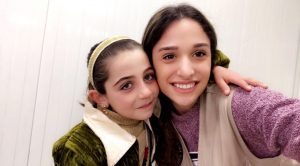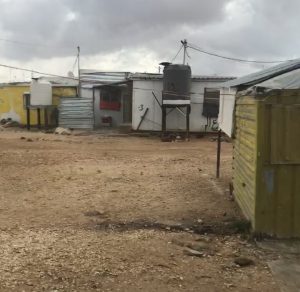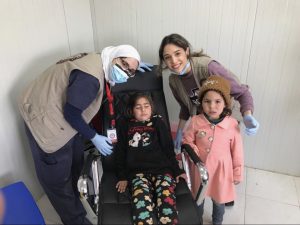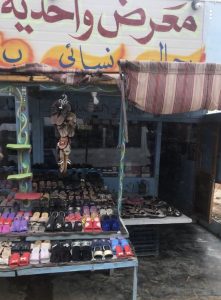My name is Dana, a junior majoring in Biology, pre dental track. I’m currently in my second semester of Arabic 102 with ustaadha Sawsan. On January 12th, I packed my suitcase and hopped on a flight to Amman, Jordan where I was about to embark on an unforgettable journey. From January 13 to 18, I worked as an English translator and dental assistant at Al-Zaatari refugee camp in Jordan. Along 75 volunteers from 12 countries, from 5 continents, I made friendships with some of the most amazing and warm hearted people. Through specialties like ophthalmology, cardiology, and dentistry, the SAMS team treated approximately 2,500 patients (around 600 of those patients treated by dentists).
During the start of the trip, I was very nervous because I was unsure of how useful I would really be to the Syrian refugees. As a pre-dental student, I have always had an interest in humanitarian work in the health care system, which is what inspired me to sign up with SAMS. Back home, at Loyola, I am co-president of Palestine Children’s Relief Fund. In this organization, my team and I are constantly advocating for refugees through events like sending backpacks to a refugee school in Jordan or through. However, to go to a refugee camp and to see the realities of the lives of refugees is truly shocking.
When I arrived at the camp, I felt like I was inside of all the videos I had seen on social media. On Facebook and Instagram, I am always seeing images of refugees and their situations online through a virtual screen and it is something that touches the heart. Yet, at the camp, my heart was touched in a different way. I could no longer swipe the page down with my finger onto the next post about cooking, which would distract me from the last post about the realities of refugees. At Al-Zaatari refugee camp, I had to deal with the situation first hand and communicate with the people around me.
Through my interactions with Syrian mothers, fathers, and children, I noticed something that may seem like an insignificant detail to many, but really stuck out to me. While assisting dentist Dr.Noor Nahhas in the newly built SAMS dental clinic, I would begin by recording the names and ages of all the patients before we treated them. Many mothers and fathers, however, often did not know how old their children were. While speaking with the forgetful parents, I remembered a time when I was about seven years old in which I thought that my parents forgot about my birthday. I was so upset and began to throw a fit about it. These children and parents alike, however, had no time to worry about things like birthdays, which we make such a big deal about in the United States. Because the issues at Al-Zaatari are so terrible, they do not have time to worry about anything but the necessities they need in their lives. Consequently, they are unable to enjoy the pleasures of life because they are constantly worried about survival. For instance, in the camp, it is so difficult for people to have access to toothpaste with fluoride in it, causing tooth decay. In fact, we once performed about 50 tooth extractions in one day because of lack of dental hygiene, which is usually due to the lack of resources these patients deal with in the camp. Despite this, I will add that the love, patience, and appreciation the patients at Al-Zaatari displayed was beautiful. If my father hadn’t immigrated to the United States in 1993 from Syria, who knows how my life would have turned out. Indeed, after this experience, I am thankful for all that I have and see it as my duty to serve those through what I have been fortunate enough to have. To conclude, we must share our blessings with others if we ever are to ever live in a peaceful world




